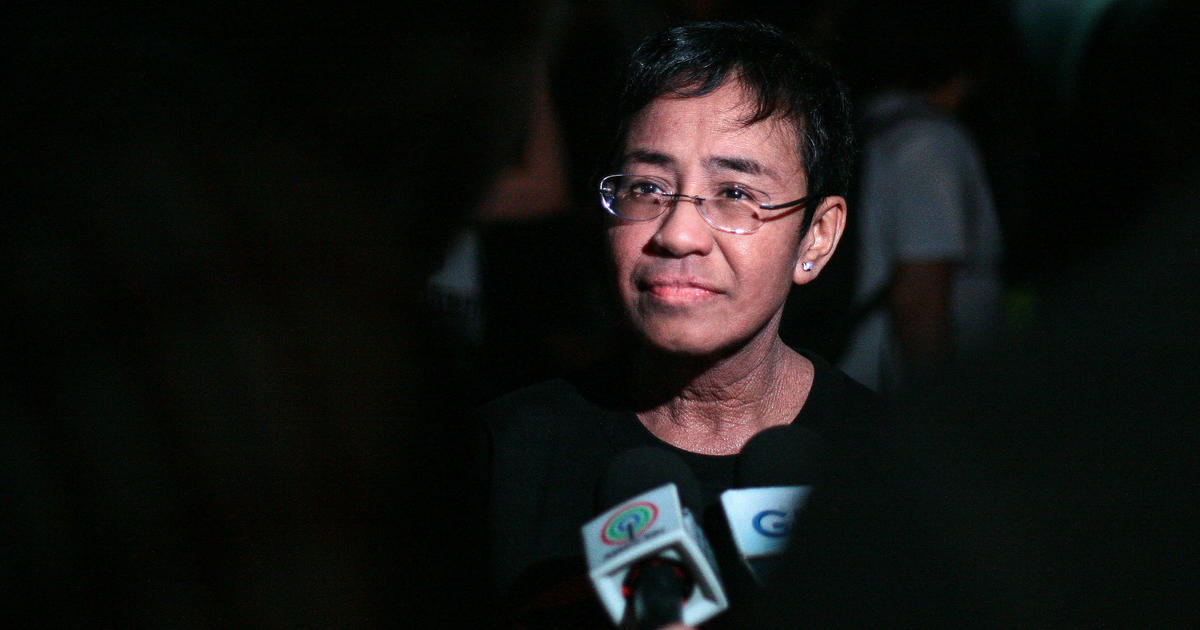Journalist Maria Ressa, who has spent decades of her career exposing corruption and disinformation, is calling for “emergency intervention” to combat social media’s influence on politics and society.
“We’re living in ‘The Matrix,’ we’re feeding energy to the social media platforms and we’re living in illusions. We are being manipulated and this is untenable for democracy,” Ressa said in a discussion with CBSN’s Elaine Quijano at the 2020 Reykjavík Global Forum – Women Leaders event Wednesday. “I now call social media platforms ‘behavior modification systems’ — we are Pavlov’s dogs.”
Ressa, co-founder and CEO of the news site Rappler in the Philippines, is currently appealing her conviction in a “cyber libel” case that could see her sentenced to years in prison. Known as a critic of President Rodrigo Duterte’s authoritarian regime, her arrest was widely criticized by the international community, and came in connection with a story that Ressa herself “didn’t write, edit or supervise.”
“Oh yeah — I forgot that part,” Ressa laughed. “I can only joke about it because it is just so ludicrous.”
Duterte has gained a reputation for targeting journalists critical of his regime, from jailing them to shutting down TV networks. Ressa’s pursuit of the truth in the face of such difficult circumstances was the subject of the CBSN Originals documentary, “Fake News, Real Consequences: The Woman Fighting Disinformation.”
Fake news, real consequences
23:05
Ressa said she could “absolutely” see parallels between the Philippines’ situation and the current tensions surrounding the U.S. presidential election.
“Last year we talked about bottom-up lies — exponential lies on social media met by top-down mimic of those lies — that’s what happened with me and President Duterte,” she said. “Look at the conspiracy theories that you’re dealing with, and ‘failure of elections’… what is being said by Rudy Giuliani, top-down; President Trump, top-down — all to make you believe there was a failure in elections.”
The trouble, Ressa said, is that “real people believe this.”
“That is what tech has enabled,” she said.
After the widely-publicized role of disinformation in the 2016 election, social media giants like Facebook and Twitter announced steps to try to help mitigate such problems in 2020. Facebook, for example, announced it would not allow new political advertisements the week before the election, and Twitter has begun flagging posts that are deemed to be misleading — including some by President Trump.
Ressa, however, said those measures are “absolutely not” enough.
“I mean, look, I give kudos to Twitter because they’re more aggressive, but the problem with the platforms is their design and the business model,” which requires keeping users engaged on order to “sell that behavioral data” to other entities. Ressa said the algorithms used by these tech giants are designed to “nudge us to change our behavior.”
“This is an insidious manipulation,” she said, adding that while one could search for systemic solutions, “these systemic solutions mean that platforms will make less money and that is their individual battles for integrity.”
She said actors like Duterte and Mr. Trump could use social media to muddy the waters and undermine the efforts of journalists to report accurate facts.
In response, Ressa and a group of academics and activists launched what they dubbed “The Real Facebook Oversight Board,” which was designed to hold the social media giant to account during the 2020 election cycle.
Asked if she is hopeful for the future of truth and facts as she waits for her court appeal, she said she was, because of “journalists who hold the line.”
“This is why journalists are under attack, because we continue to speak truth to power, to hold power to account,” Ressa said. “And remember this: Every generation gets the democracy it deserves. We can’t lose democracy under our watch.”
